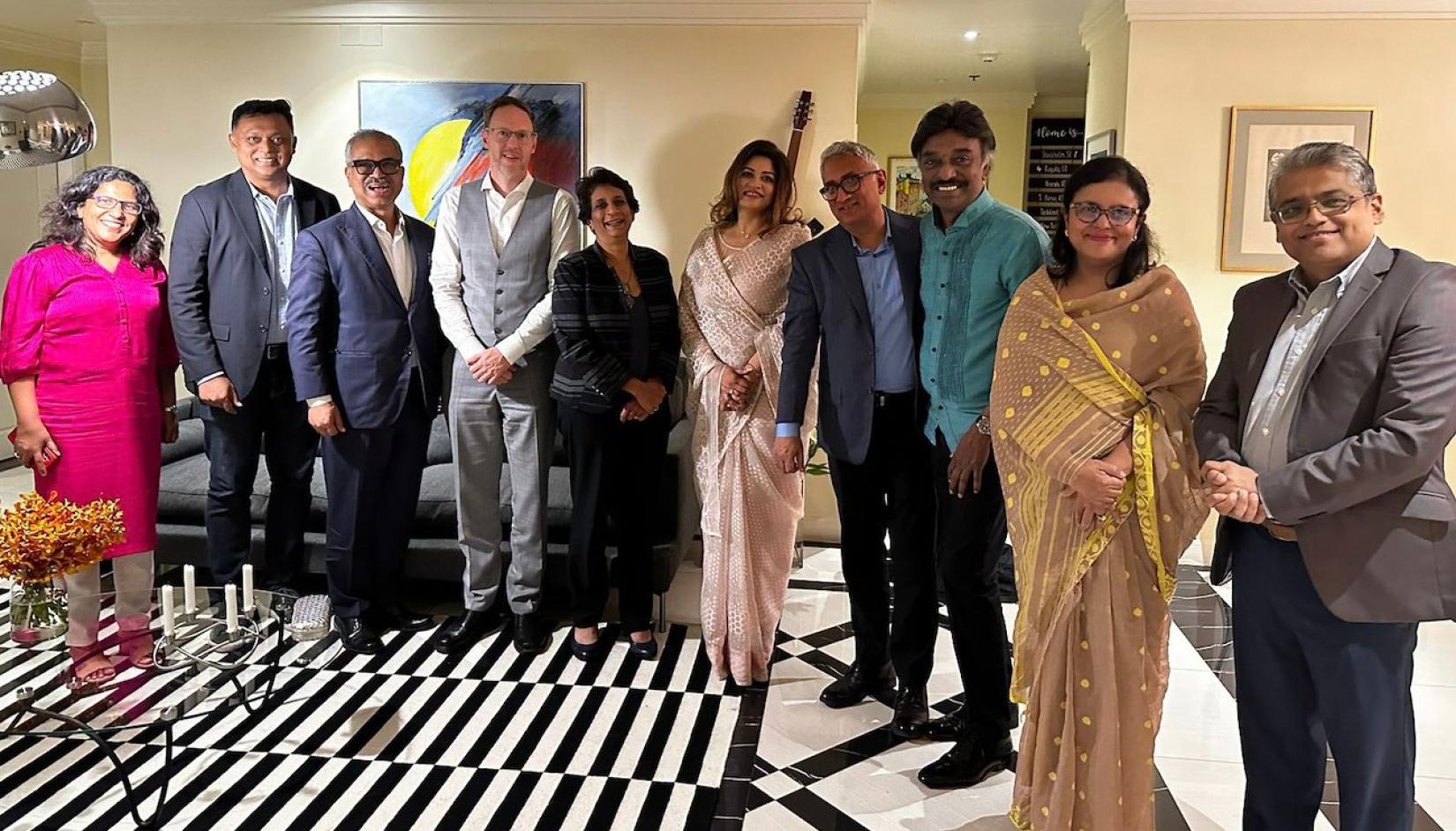WITNESSING BANGLADESH'S RESILIENCE AND ASPIRATIONS
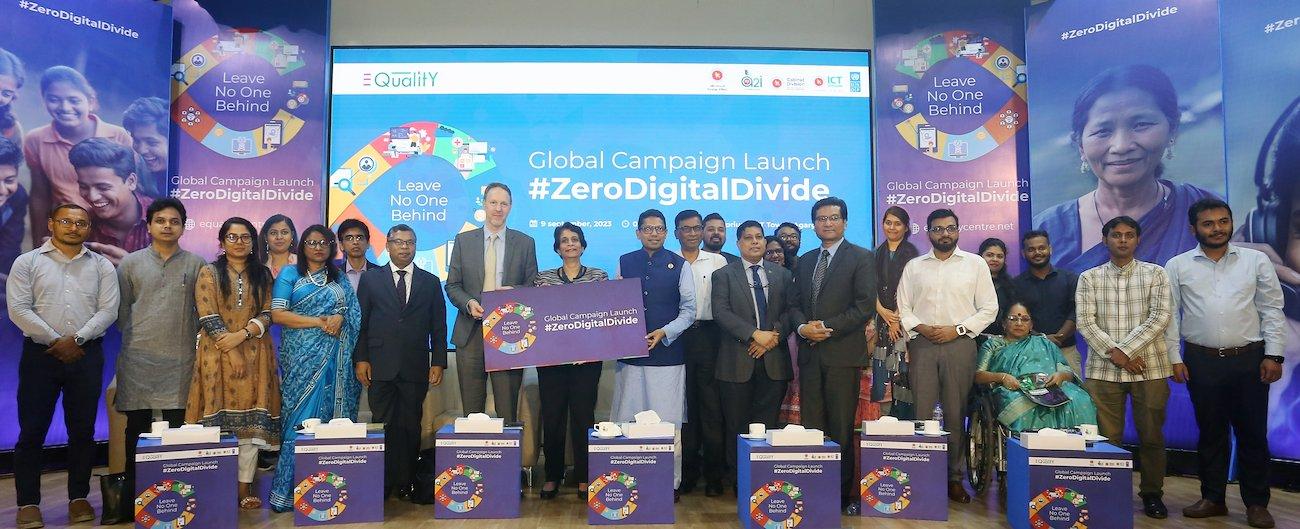
OCTOBER 6, 2023
Between the 9th and 12th of September, United Nations Assistant Secretary-General, and UNDP Asia Pacific's Regional Director, Kanni Wignaraja, visited Bangladesh, an experience she referred to as more than a formal visit, but also a deeper exploration into the nation's commitment to resilience and aspirations of progress for those left behind.
Her mission was to witness, understand, and amplify the stories of progress and challenges that Bangladesh faces.
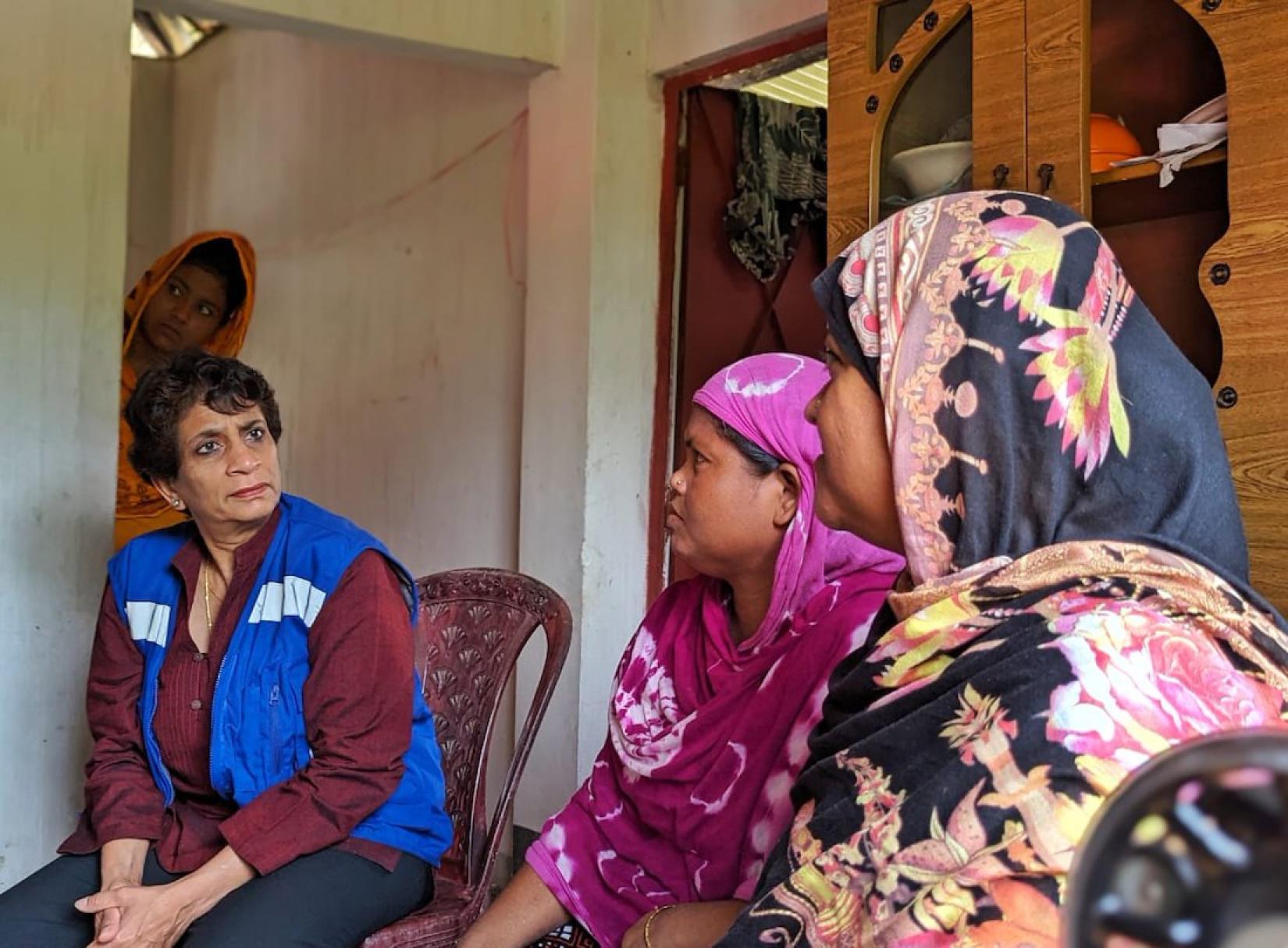
On the inaugural day of her mission, Kanni, alongside the State Minister for Information and Communication Technology (ICT) Zunaid Ahmed Palak, launched the Zero Digital Divide campaign by Aspire to Innovate (a2i), with an aim to eradicate digital inequality globally. She remarked, "In 2010, Prime Minister Sheikh Hasina and former head of UNDP Helen Clark initiated what has now flourished into a network of 9,000 digital centers across Bangladesh, with its roots in the remote island of Kukri Mukri."
From highlighting the remote island "Kukri Mukri" at the start of her visit to setting foot on Hatiya the very next morning, Kanni immersed herself in Bangladesh's core climate resilience initiatives.
In Hatiya island, she witnessed firsthand the challenges faced by communities grappling with the impacts of climate change. Yet, amidst these challenges, the resilience of the Hatiya inhabitants shone brightly, echoing the sentiment that, together, we can fortify Hatiya against the changing tides.
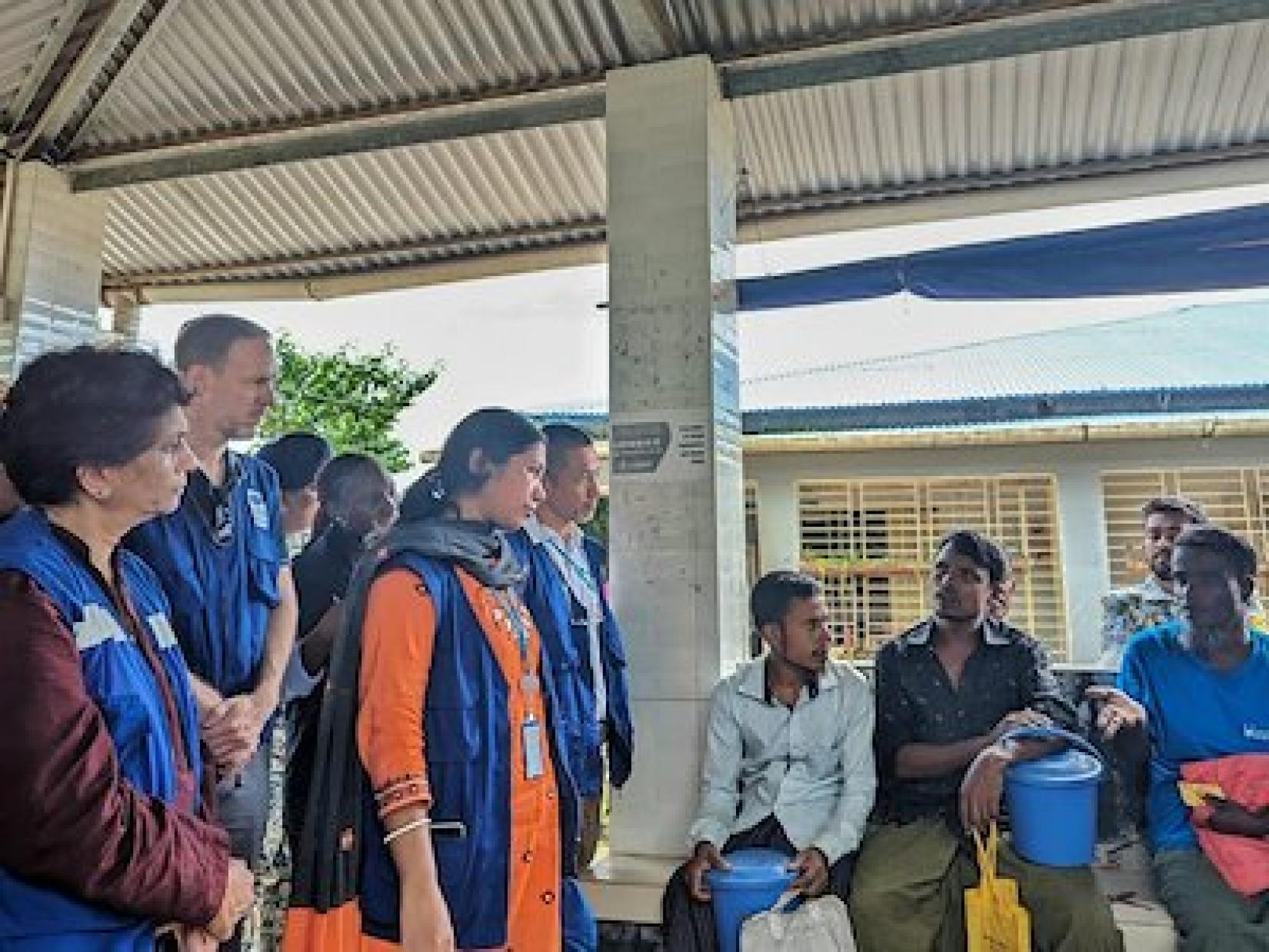
In a similar vein, her visit to the Asrayan project in a couple of locations, demonstrated the Bangladesh Government's proactive approach to addressing basic needs of the most vulnerable communities facing climate adversity. Here, she appreciated the community and local government dedication to uplifting those affected by climate change, through providing resilient shelter for the homeless. These conversations also brought out a local-to-national commitment to building a more climate-resilient future.
After witnessing the proactive measures against climate adversity, she furthered her engagement at the Regional Climate Summit 2023. Where, she emphasized, "Climate vulnerabilities impact the ability of countries to accelerate and bring the SDGs back on track. However, with UNDP's partnership with South Asian countries, we stand united against the climate crisis. Our collective strength can lead us to a prosperous and peaceful future." This statement resonated deeply with the conference participants, highlighting the importance of collective action in the face of climate challenges.
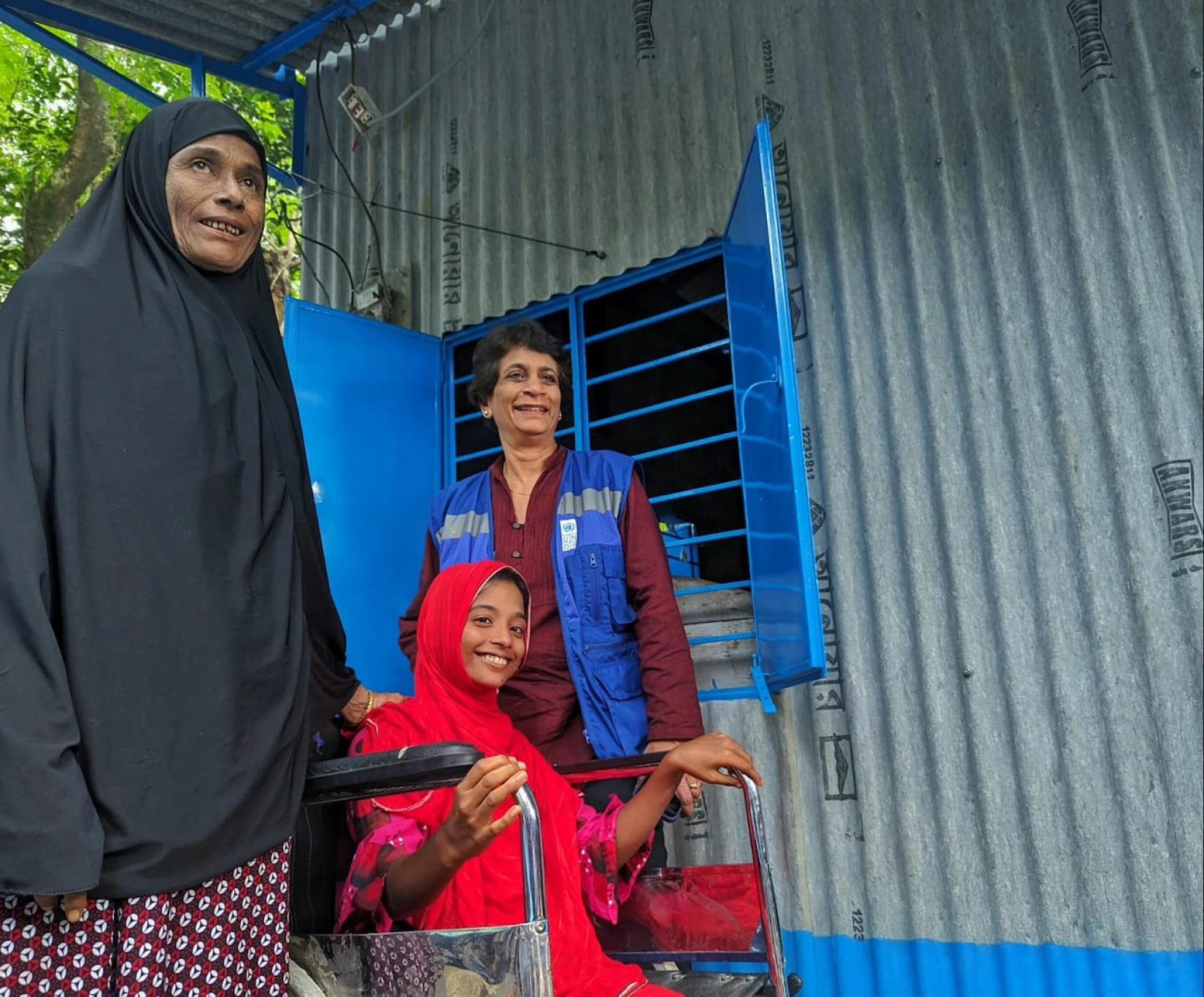
Kanni, journeyed to both Bhasan Char and Cox's Bazaar, visiting the two Rohingya refugee communities to directly engage and to gain a a fuller understanding of their current situation.
During her journey to the Rohingya refugee camps in Cox's Bazaar, Kanni, was graciously hosted by IOM at the "Rohingya Cultural Memory Center." The Center is a sanctuary where the stories, traditions, and memories of the Rohingya people are meticulously preserved and celebrated by empowering the community itself. It stands as a testament to their resilience and the collective efforts to support them.
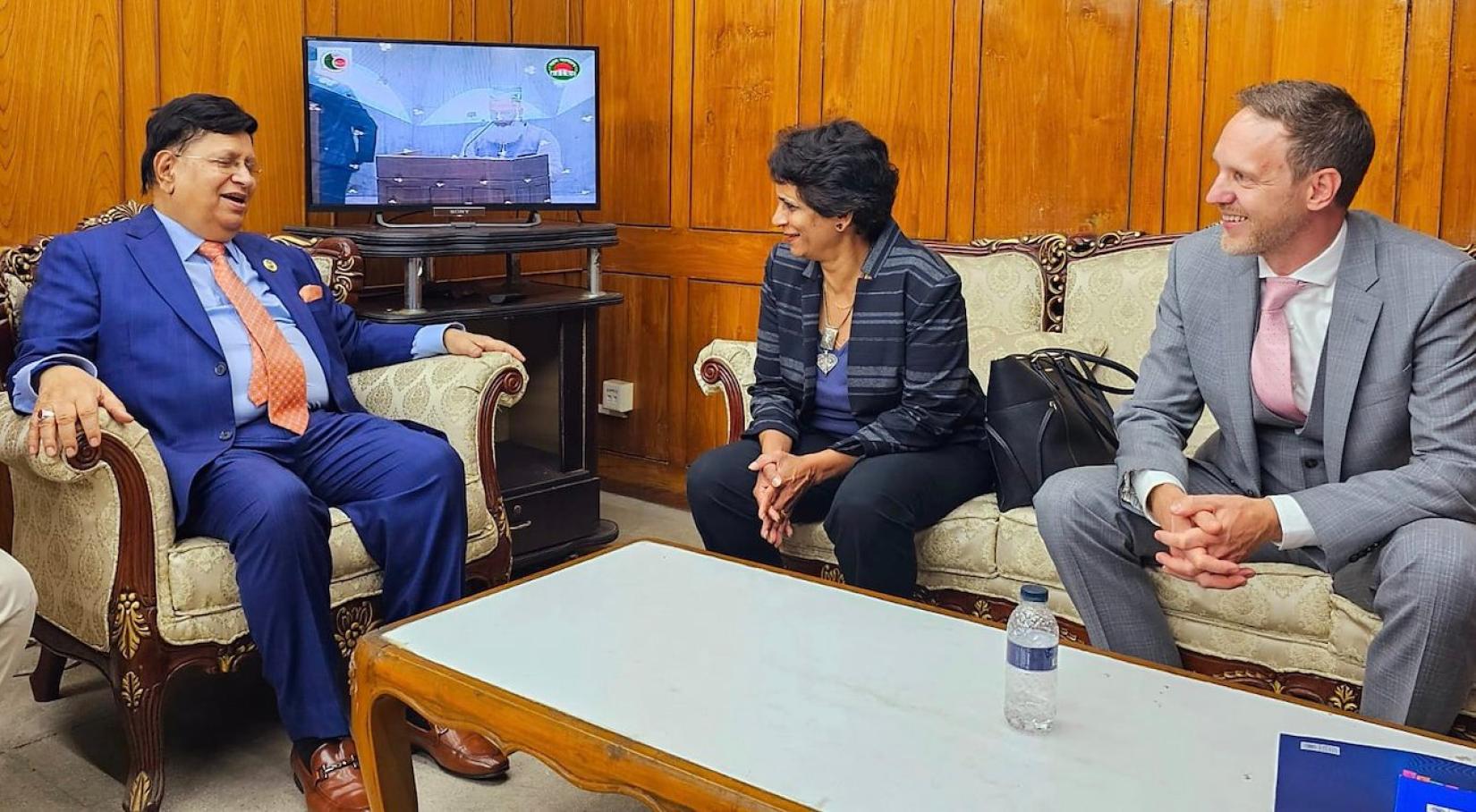
As she walked around the camps, Kanni, felt the profound influence of UNHCR's and other UN agency support, capabilities, and commitment through a range of initiatives. Their unwavering focus on making living conditions more bearable, shoring up services, and addressing natural disaster and basic safety concerns served as a testament to the potential of UN, government and partner collective efforts addressing the immediate needs of these vulnerable communities.
Her exploration of the Rohingya camps ended with a presentation of the World Food Programme's pioneering e-voucher system. Visiting a WFP-operated food distribution point, she engaged with the Rohingya community, to better understand the impact of this initiative, health interventions and others in their daily lives.
As Kanni’s field visit concluded, she felt deeply inspired by the synergy between the Bangladesh government and UNDP on supporting the growing needs of local communities. This shared vision has manifested in groundbreaking housing, sanitation, and local infrastructure solutions, offering coastal communities a shield against adversity. These houses, built with sturdy mild steel frames and resilient cement sheets, produced locally, are designed for the safety and sustainability of eco-fragile zones, including coastal communities. Kanni reflected on this first-hand look at this prototype as a poignant reminder of the power of collaboration in fortifying at-risk regions.
Following her time in Bhasan Char and Cox's Bazar, Kanni recounted returning to Dhaka with a renewed sense of hope and purpose, in her follow-up formal meetings there. There, she met with the heads of UN agencies and select ambassadors. Their discussions cantered around the Rohingya refugee concerns and options for their future. Recognizing the complexities and sensitivities involved, the dialogues aimed to strategize with international partners, North and South, seeking collaborative and sustainable solutions to ensure the safe and dignified solution to this now-protracted situation.
On her concluding day in Bangladesh, Kanni, engaged in substantive discussions with key government leaders and officials, including the Foreign Minister, Principal Secretary of the PM’s Office and the Speaker of Parliament to further discuss Bangladesh’s national, regional and global roles and upcoming engagements.
Topics spanned the deep-rooted UNDP-Bangladesh partnership and what more could be done; regional dynamics and South-South collaborations, the upcoming SDG Summit and COP28, access to climate and development finance strategies, and the Rohingya refugee crisis.
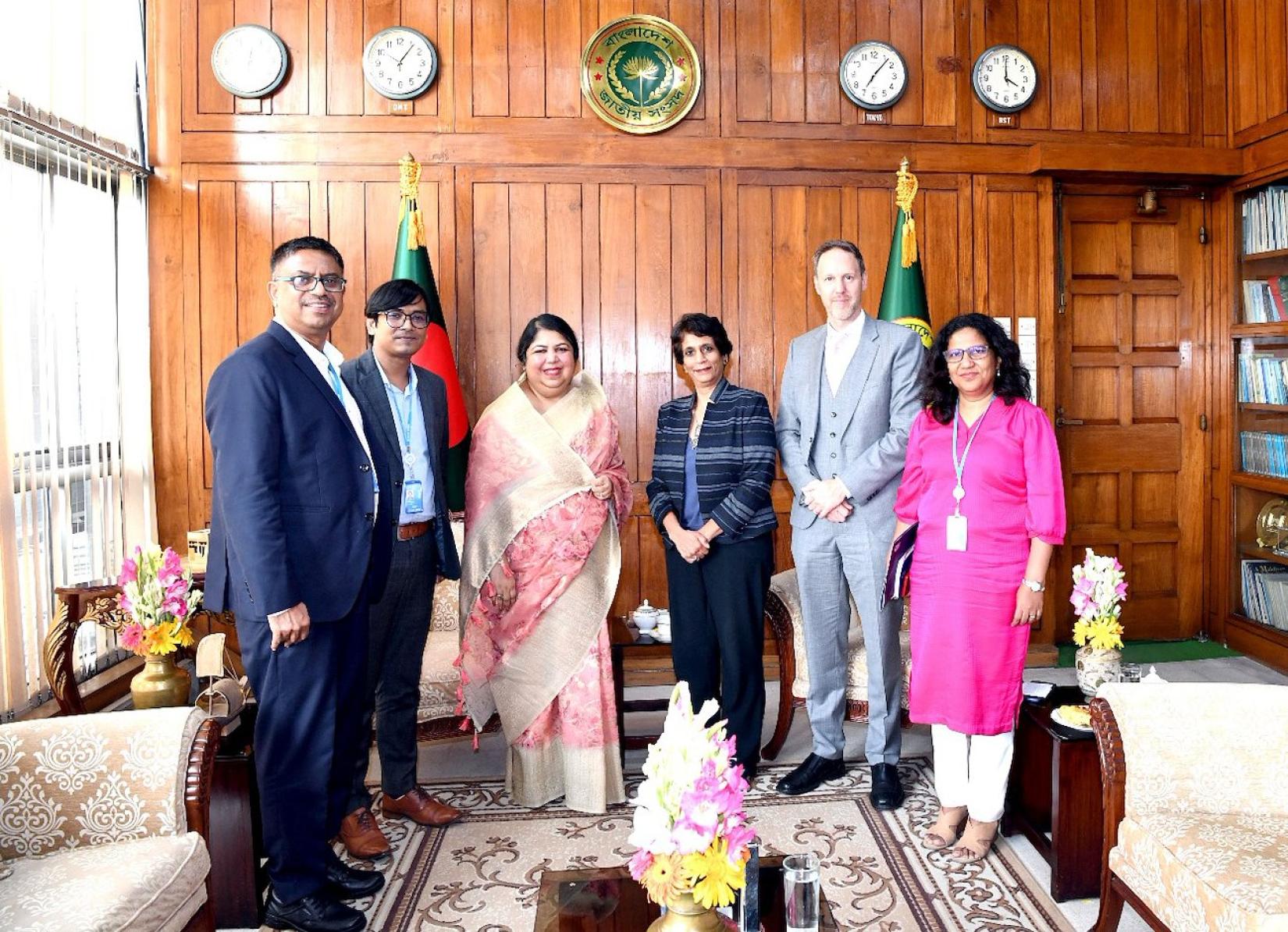
Additionally, she had an opportunity to connect with private sector leaders, highlighting their integral role in digital transformation and building up a capable and competitive innovations eco-system, underscoring their critical role and impact in defining and supporting Bangladesh's sustainable developmental trajectory.
As UNDP celebrates half a century of collaboration with Bangladesh, Kanni’s journey through the country paints a vivid picture of mutual aspirations. Her interactions, from high-level government officials to the dedicated UNDP Bangladesh team, reflect a nation driven by determination, innovation, and unity. She reflected on her visit as a deep dive into a nation's evolution and the collective commitment to its brighter future.
We extend our heartfelt gratitude to her for taking the time to visit Bangladesh and for her invaluable insights.
To conclude, Kanni had an exclusive interview with “Tritiyo Matra”, where she reflected personally and professionally on her recent visit to Bangladesh.
Ahead of her visit to Bangladesh, Kanni wrote an op-ed emphasizing the urgent need for renewed global commitment to the Rohingya refugee crisis and the importance of sustainable solutions for their well-being. READ HERE
